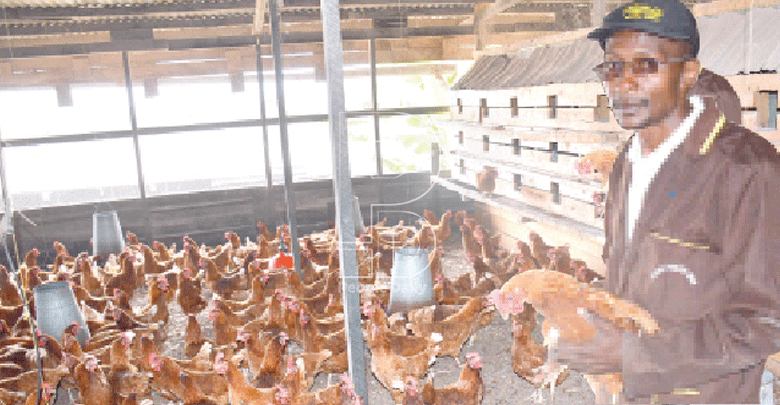Poultry farming: Imports leave poultry keepers with egg on face

Donning a brown dust coat and a cap, Moses Ngaithe scratches his head with a yellow pen as he stares at empty chicken coops.
Ngaithe has over the last 33 years worked as manager at Kirika Poultry Farm in the slopes of Gakui village in Gatundu North, Kiambu county. The chicken coops are empty because last year, they were forced to dispose of 40 per cent of the farm’s hens due to bad business.
Kirika Farm is made of three farms; Gakui with a capacity for 120,000 birds; Mitero (90,000) and Karibaribi (90,000) in Gatundu North and Thika sub-counties. Until 2018, the farm operated at full capacity, producing at least 4,500 trays of eggs daily from the broillers. The eggs were sold at Sh280 per tray.
The earnings were enough to purchase feeds, which cost Sh2,200 per 70kg bag for chick mash, layers’ mash (Sh2,000) and growers’ mash (Sh1,800), pay about 100 employees and still make reasonable profits.
Overproduction
This year, business has been disrupted by high cost of feeds and a glut in the egg market. Apart from local overproduction, importation of cheap eggs from Uganda and China has led to a collapse of market prices.
Government statistics show that in 2018, Kenya imported five million eggs from the neighbouring country. According to Kenya Poultry and Breeders Association (KPBA), it’s estimated that over 35 tonnes of Uganda poultry meat are imported into Kenya every week.
Currently, Kenya’s annual egg production stands at 1.6 billion while annual consumption is estimated at 1.2 billion, according to the Ministry of Agriculture. This means farmers are left with a surplus of 400 million eggs and any importation only serves to kill the local poultry industry.
Today, Kirika Farm, one of the largest poultry farms in Kenya, has 170,000 birds—80,000 at Gakui, 60, 000 at Karibaribi and 30,000 at Mitero. Egg production has plummeted to below 3,000 per day.
The directors of the agribusiness had earlier invested in a commercial animal feeds factory, Chania Feeds, which supplies the farms with chicken feed at wholesale prices. Nevertheless, the discount is not enough to make the chicken farms profitable.
Consequently, the poultry venture has laid off half of the 100 workers. “Our woes began in 2013 when government imposed Value Added Tax on animal feeds and the cost rose to Sh3,000 for chick mash, growers’ Sh2,900 and layers’ Sh2,700.
Though the profit margins reduced considerably, the venture was still manageable. However, following the flooding of the market by eggs from Uganda last year, everything came crumbling down. Cost of production is lower in Uganda because of lower or no taxes.
Ngaithe said while they had set their prices between Sh280 and Sh300 per tray, the imported eggs led to a slump in prices to Sh180. Given the oversupply, sales first dropped to 80 per cent of eggs collected, which later dropped to only 40 per cent.
“Given the high cost of production — feeds, electricity, labour and transport—you can’t sell eggs at below Sh250 a tray and still make profit. Between October and December last year, we threw away over 30,000 trays of eggs. We were forced to dispose of 120,000 out of 300,000 birds,” he said.
Import ban
Agriculture Cabinet secretary Mwangi Kiunjuri recently undertook radical measures to restrict importation of eggs by, among other things, requiring the importers to obtain clearance from his office, but it was too late. Although prices have stabilised, many farmers have given up.
In a memorandum to be sent to Parliament, KPBA wants the State to ban the importation of poultry products, waive fees, import duty and VAT on prefabricated poultry houses with automatic environmental control equipment. “We want the sector to become competitive globally; farmers also require import duties on yellow maize to be lifted,” says Humphrey Mbugua of KPBA.














